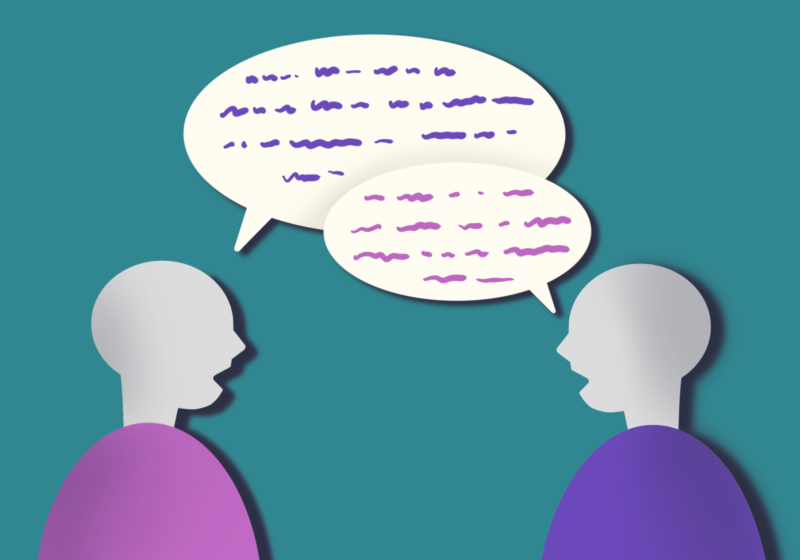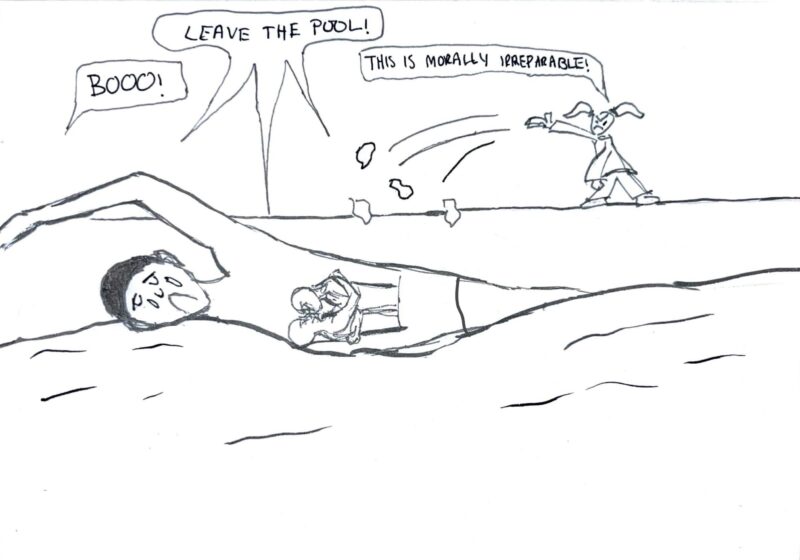“Lei ming m ming baak ngo gong ge waa ah?” Do you understand what I am saying?
I stare back dumbly, my lips parted, the ideas clear in my mind but a response unable to verbalize itself in a language in my distant periphery. My mind races as it sorts through my limited Cantonese vocabulary, mainly picked up colloquially from my elders, frantically stringing together pronouns, verbs, and objects to form intelligible sentences. After an uncomfortable pause, a jumble of words spill out of my mouth, sounding forced and unnatural.
The anecdote above is a semi-conversation I had in Malaysia years ago. I exist at an intersection between two worlds, one distinctly American shaped by my upbringing here, the other an echo of my Malaysian heritage confined to my home and still somewhat remote. In class and pretty much everywhere else, I hear and speak English. But at home, I listen to not only English but the different Malaysian-accented rhythms of various dialects that blend harmoniously in our everyday conversations. The resulting dialogue — a rojak, the word for “mixture” in Malay — was the language of my childhood and seemed nothing but normal to me: My parents spoke a rojak between themselves (one that I would probably never be able to recreate, no matter how hard I try) and I spoke in the language I knew best, English.
A three-week stay in Malaysia once every few years was often the highlight of my summers — what more can you ask from a food paradise? But besides the family, food, and escape that Malaysia offered, trips also brought accompanying feelings of guilt that I just couldn’t seem to decipher. Once every few years, I got a taste of what it feels to be an outsider in my own culture, peering in. For one month every few summers, I was a girl lost in translation, passively absorbing the various tongues shouted between the stalls in the wet markets, quietly nodding along at my grandparents’ huge family dinners. Guilt because of languages I couldn’t speak well, guilt because I had chosen to stay silent out of fear of embarrassment instead of trying harder.
In America though, I am a different person. I don’t think twice about my grammar when speaking. I don’t worry about conjugating incorrectly. I don’t struggle with the words and fear that my logic and stories won’t get through to people. With my friends, I speak English unabashedly and unapologetically, choosing my words deliberately because I know exactly what I want to say and how I want to say it. Speaking is an art — not just a bare means of communication. Across my phone’s documents and various messaging apps, I keep a running list of words that I find interesting, or words that are just pretty that I want to use in some form, someday. And in my free time, I draft, turning those thoughts into strings of English words, because that’s what verbalizes everything best.
My experience in Malaysia is commonplace for immigrants in America, except that for them, this fear of judgment and the judgment itself are not just temporary discomforts of a month-long vacation — they are inescapable realities of everyday life. It is or has been the reality of one in three UR undergrads, each international student whose first language often isn’t English. It’s a luxury for me to open a physics textbook — written in English with loads of technical jargon — and be able to finish a chapter in an hour, while it may take a non-native English speaker twice as long. It’s also a privilege for me to be able to express whatever I’m feeling unhampered by speech, while an international student may be restricted to vocabulary and syntax in a language they’re not so intimately familiar with.
I know I’m privileged. As a native English speaker, I do not have to worry daily about whether I’m judged for having an accent or whether I’m misunderstood across languages. In Malaysia, everything about the way I speak — my accent, intonation, sentence structure, slang — gives me away. In Malaysia, a place that I’m also supposed to call home, my privilege and power is stripped, peeled off layer by layer each time I naturally blurt out “have you eaten?” instead of recalling the Malaysian creole equivalent “you makan already?”. My American-ness exudes in the way I talk, dress, and act. Maybe my face could pass for a Malaysian local, but once I open my mouth to speak I am so clearly not. It is uncomfortable and awkward, and sometimes I wonder if I did not look Asian at all would it be better, since there would be no more language expectation for me than for a white tourist.






